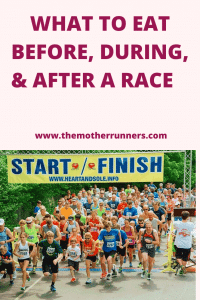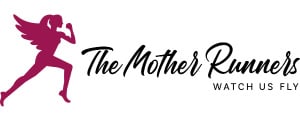Let’s talk race-day nutrition.
And who better to talk with than sports nutrition legend, Eddie Reymond? Eddie has helped more than 16,000 athletes including many Olympians, gold medalists, and world champions nail their race-day nutrition. In fact, athletes travel from far and wide to consult with Eddie, founder of Eddie’s Health Shoppe, which just happens to be located in my hometown of Knoxville, Tenn. After working with Eddie and changing their diets, athletes have made Olympic teams or ceased being chronically sick and injured.
As Eddie puts it,
“If you really think about the fact that our bodies are fueled by the foods that we eat, should that not logically tell you that you will perform as well as you eat? It does.”
I spoke with Eddie about what the best race day nutrition products are for before, during, and after a hard workout or race. Here are his trade secrets.
Related: Healthy pantry-staple meals

What should we eat before a race or workout?
The most important thing before a workout is the fueling, not only making sure to eat but that you give your food enough time to digest (typically between 1.5 to 2 hours prior to event or workout). I get frustrated with knowing how many young athletes go to practice after school in different sports with lunch, hours before, being the last thing they eat!!!!
I first try to make sure that everyone understands the basis of the foundation of food timing before we even look at supplements. Once we have got the nutrition and meal timing in line, then we can start looking at possible supplementation. In that case, prior to exercise, we might consider taking:
Beta alanine to help buffer lactic acid build-up.
Beet powder or Citrulline to increase blood flow and nitric oxide.
Amino acids such as Tyrosine for focus and Carnitine for energy.
I am also a big fan of the medicinal mushroom Cordyceps. which is great for breathing, energy and stamina.
These are just a few different supplements out of many others that athletes can take prior to exercise, but again food including healthy carbs and protein will always be most important! My favorite company for most of these supplements is Millennium Sports due to the quality and how clean and safe they are. Most of my Olympians and athletes that get drug tested use Millennium Sports products.
Related: 3 proven ways to refuel from a long run
What to eat during a race or workout?
Nutrition during is really trickier because everyone is so different. I typically make some suggestions and let people try different options during training runs or workouts until they find what works for them.
I like a product called RPG by Millennium that is a mix of your BCAA’s (branch chain amino acids), glutamine, electrolytes, and tart cherry extract for inflammation. It has no caloric value and is very clean and natural.
I also suggest people try different gels and not just “GU.” Huma gels, Accel gels, Spring gels, and a few others can be better options. I also like to have options of things you can chew like Honey Stinger waffles and chews, and Clif shot blocks.
What to eat after a race or workout?

After races, runs, or any exercise it is important to replenish the carbs and protein that were utilized and broken-down during exercise. That window of opportunity to recover optimally is only 30 to 40 minutes long so a shake can be quicker and more balanced than waiting on our next food meal. Any other time real food is better than a shake. Options like chocolate milk can also work but it is not the best or healthiest option.
Since recovery is so important to me, I helped Millennium Sports formulate a product called Athletes Recovery. We formulated it to have the best ratios of nutrients possible (it has a 2:1 carb to protein ratio, with 34 g carb and 16 g protein per scoop) and added amino acids. It is also a very clean product, with grass-fed New Zealand whey protein and no artificial sweeteners that many other protein powders contain.
In addition to a good post-workout shake that contains protein and carbohydrates, I also suggest supplementing with extra Glutamine, the amino acid that is the most abundant in our bodies but gets depleted after exercise. It really helps with faster recovery and muscle soreness.
Related: How to have a healthy kitchen
What should moms keep in mind for their nutrition?
Moms, and women in general, are more than likely going to have an iron deficiency at some point, so it is good to supplement.
My favorite product is Blood Builder by Megafood. It is made 100% from real food so it is very easy on the stomach and very well absorbed.
Typically the more and the harder you train, the more nutrients your body needs, so a multivitamin can help round out any deficiencies.
Vitamin D3 specifically is a common deficiency among American adults. It is even more important to women who run and could benefit from having stronger bones.
We also do not get enough Omega 3’s in our diet, so supplementing with either fish or plant-based oils (like flax or an algae omega) is important. Omega 3’s have many benefits, including joint health and reducing inflammation, improving hair, skin, and nails, improving brain health and focus, and heart health.
Magnesium is another one that most American women are deficient in, and supplementing with magnesium has many practical applications to athletes. It can help reduce muscle soreness and cramping (hormonal-related cramping as well), reduce stress, improve sleep, and improve heart health.
Of course, it’s always a good idea to chat with your doctor before starting a new diet or supplement. I personally use glutamine as a post-race and post-workout staple and also take supplements for iron, magnesium, D3 daily along with a multivitamin.
Eddie’s here’s to help guide you–by phone or in person.
